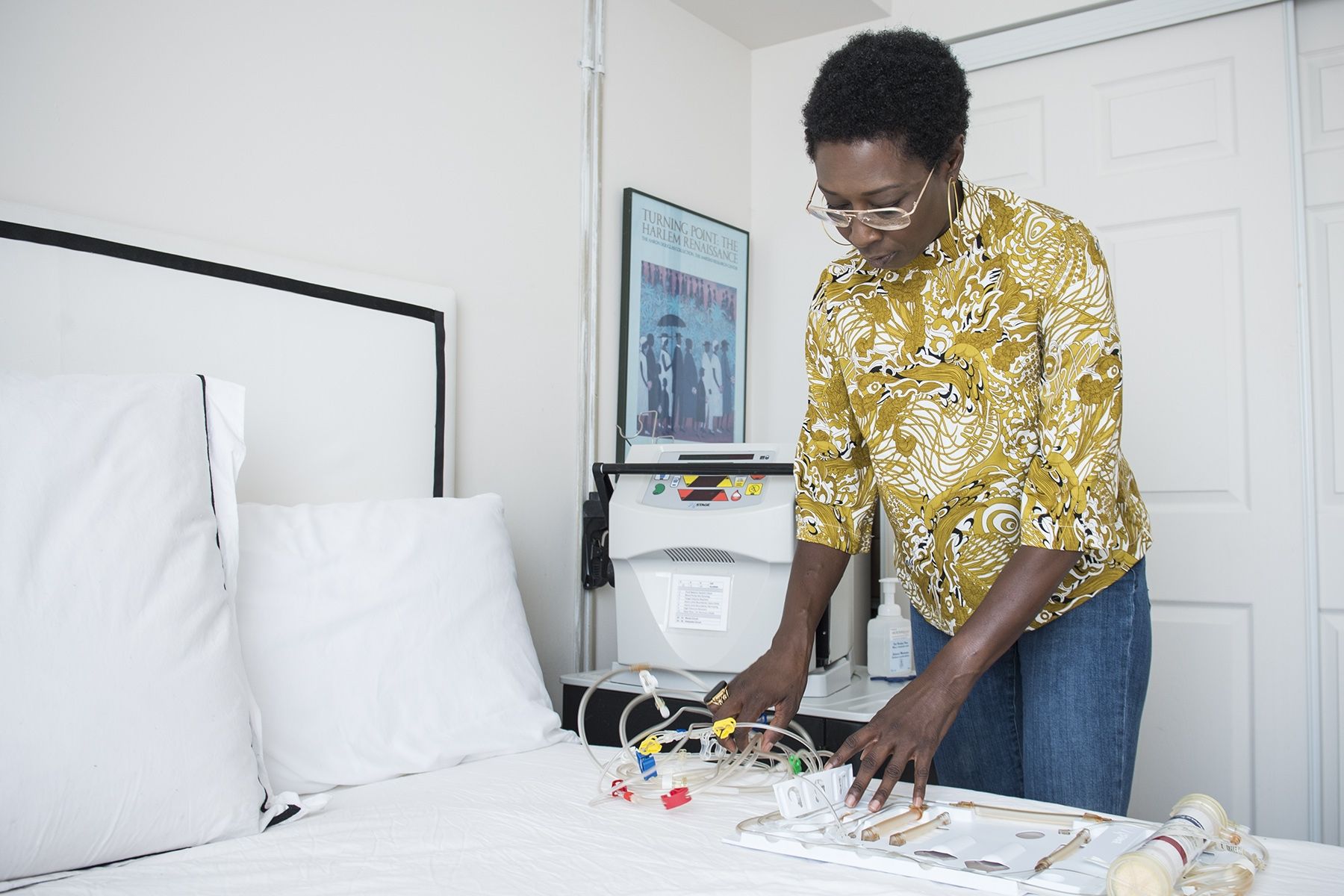
Over the years, KGH Patient Experience Advisor Karen Nicole Smith has spent her fair share of time in the hospital. But thanks to a dialysis machine that she can use in her home, she’s been given back the valuable gift of time. Now many more KGH patients, who like her require dialysis, are also transitioning to receive care in their own homes.
Dialysis itself is a regimented therapy that needs to be done multiple times a week and takes several hours each time to complete. By offering it in a patient’s home, instead of in the hospital, patients can take back control of their lives and plan their treatments on a schedule that works for them.
“My motivation to be home has a lot to do with the flexibility,” says Smith. “At home I schedule dialysis into my life between work, the gym and my social life. I can schedule it when I want so that I don’t compromise any of the things that are important to me.”
In fact, providing in-home dialysis has been found to be so beneficial for patients, the Provincial Government has put a specific focus on increasing the number of patients who receive the in-home treatment. In our region KGH is the lead for the Ontario Renal Network and over the past year has made a concentrated effort make sure patients are able to receive the treatment at home.
“Of the 28 regional programs in Ontario, Kingston has seen the second highest growth rate over the last 12 months,” says Dr. Benjamin Thomson who is the medical director for the Home Dialysis Therapies program at KGH. “The number of our patients receiving home therapy has grown by 60 per cent since last year. To do this we have expanded our team so that we can provide education and support to patients so that they are able to begin home therapy.”
The benefits of home therapy include much more than just the freedom to have more flexible schedules. There is also evidence that it leads to better health-care outcomes.
“We’ve seen that patients who receive home dialysis treatment have fewer restrictions on their diets, need fewer blood pressure medications and report a better quality of sleep,” says Dr. Thomson.
It also has been shown to be cheaper for patients since they don’t have to take time off work to travel to a hospital in the region and pay to park for multiple hours a week. Emotionally, spending long periods of time in the hospital can also be difficult for some people.
“Sometimes it’s fundamentally just too much of a reminder that I have an illness,” says Smith. “For the sake of me having a healthy and active perception of myself, I need to have dialysis at home. I have my dialysis room set up with lots of nice colours and items. Every detail contributes to my well-being.”
The goal of transitioning dialysis patients into their own homes also comes at a time where the technology has progressed enough to make it easier for patients to run their own machines. However, for patients who are too sick or feel uncomfortable with doing home therapy they can still receive treatment as close as possible to where they live. KGH operates satellite dialysis clinics across the region in Belleville, Smiths Falls, Bancroft and Picton as well as the larger clinic here in our Burr wing.
For more information on Home Dialysis Therapies, you can contact Dr. Thomson by phone at 613-549-6666 extension 7306 or email or Wendy Robertson Registered Nurse and Independent Dialysis Coordinator by phone at 613-549-6666 extension 1310 or email.
Gallery


Thanks to her home dialysis machine, Patient Experience Advisor Karen Nicole Smith is able do her treatment in the comfort of her own home, rather than in a hospital setting.



